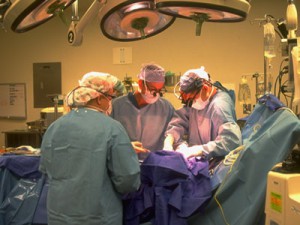
Traditional methods of spine surgery, termed “open surgeries,” require large incisions to access the spinal column, which can severely compromise the soft tissue and supporting muscles of the back. Damage to these supporting muscles leaves patients with longer, more painful recoveries. Minimally invasive operations, by contrast, access the spine through multiple small incisions, limiting tissue damage and blood loss, and significantly shortening hospital stays and recovery periods.
In the past, minimally invasive spine procedures had limited application because of the inability to acce
These advances are good news for all patients as we live longer, more active lives, and especially for those who would otherwise be unable to tolerate an open surgical approach. Elderly, obese and fragile patients, and patients with weakened immune systems, can now benefit from spine surgery with less risk of blood loss and infection. These techniques also benefit younger patients who want to get back to work faster and with less permanent muscle damage.
Minimally invasive techniques can now address the full range of spine disorders, including degenerative diseases, deformities and tumors. Patients suffering from spinal stenosis, disc herniation, slipped vertebrae, scoliosis and even cancer can benefit from this targeted surgical approach and return to normal activities more quickly without compromising long-term outcomes. Patients have great outcomes with minimally invasive procedures. They require less pain medication postoperatively and return back to full-time work faster.
Patients who have had minimally invasive spine surgery have less physiologic damage and are at a better starting point than patients who have had open surgery. Many of the patients are shocked at how quickly they are out of bed and moving. They are in less pain, and they spend a less time in treatment.
Surgeons constantly strive to create simpler, more effective means to treat the broadest range of patients with the best outcomes possible.
For more information on Spine Surgery please visit this link: https://safemedtrip.com/medical-services/spine-surgery-treatment-in-india/minimally-invasive-spine-surgery-in-india.html

 Click to WhatsApp
Click to WhatsApp +91-9899993637
+91-9899993637



